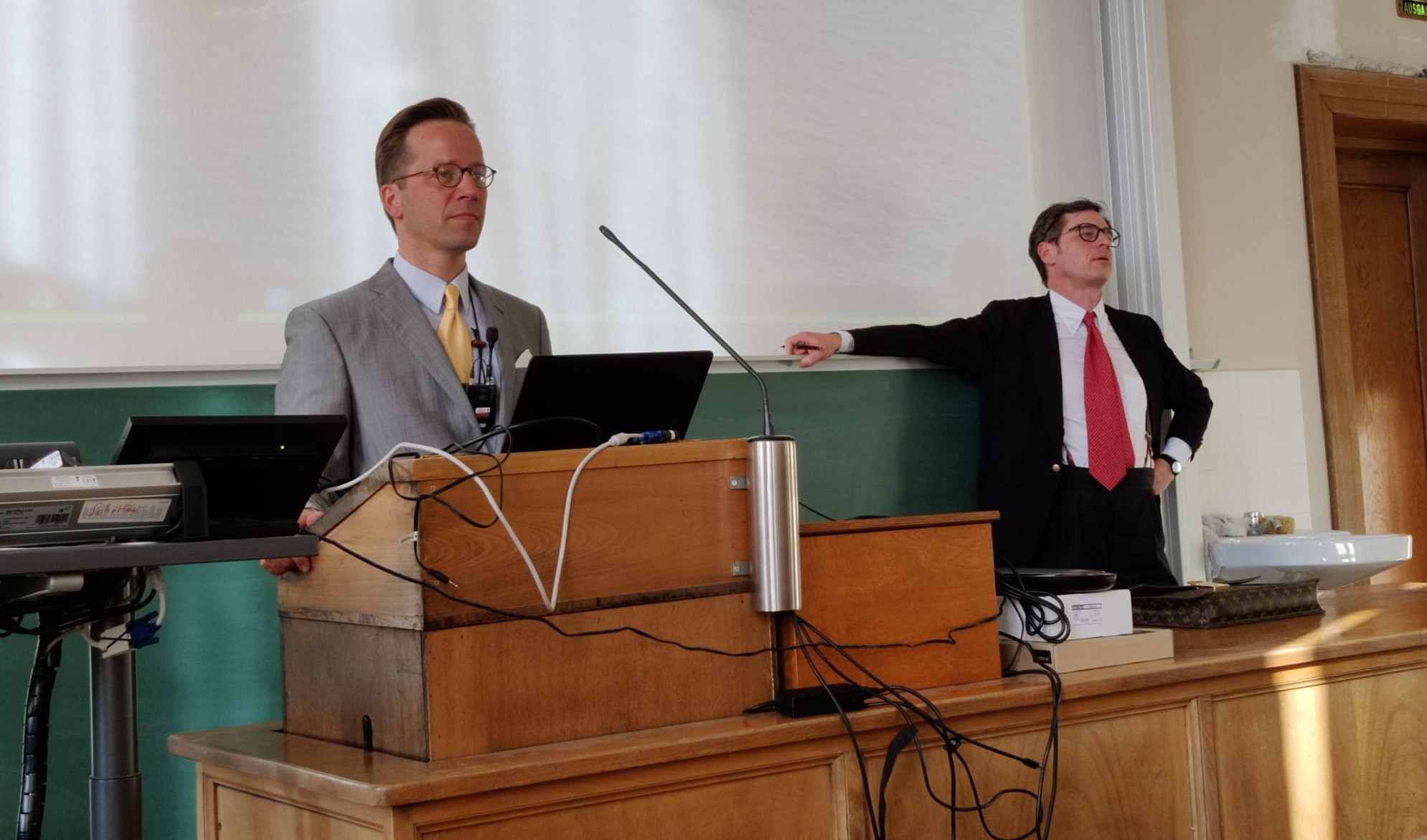05.05.2022
Machine learning, market manipulation and collusion on capital markets: Why the black box matters – interactive talk with Prof. Wolf-Georg Ringe
Last Tuesday, Prof. Stefan Thomas and Prof. Michèle Finck invited to an interactive talk led by Prof. Wolf-Georg Ringe, director of the institute Law & Economics at the University of Hamburg.
Ringe, being a specialist at the intersection of AI (artificial intelligence) and law, presented his research on “Machine Learning, Market Manipulation and Collusion on Capital Markets: Why the “Black Box” matters” which has been realized in cooperation with Alessio Azzutti and Siegfried Stiehl.
The paper basically treats the implication of machine learning on competitive market processes, emerging issues and possible solutions.
Ringe explained that due to the rapid evolution of artificial intelligence and their use on the global financial markets, strong evidence exists that eventually fully autonomous AI trading agents could act independently on the markets. They would benefit from a combination of already existing technologies such as deep learning and try and error. As a consequence, one could set a specific goal such as profit maximalisation by the end of the week and the algorithm would invest by itself, finding the best way to reach the goal.
This prospect implies various legal and ethical issues on liability for AI wrongdoing and/or crimes and therefore attracts the attention of lawyers such as Ringe. “When things go wrong, we are interested”, he pointed out aptly during his talk.
Autonomously acting algorithms could learn how to cheat and commit market abuse in terms of market manipulation (e.g. “spoofing” or “pinging”) and “tacit” collusion without human interference. Since algorithms’ decision making is not fully understandable for human beings and therefore pictured as “black box”, the current legal system faces various issues emerging from AI use in the specialist’s point of view.
So far, it strongly relied on a human subject and criteria as intent, causation and negligence that could not be applied on AI’s actions, Ringe stated. Moreover, he unveiled the lack of explainability of an AI’s decision making as a fundamental problem for compliance systems and enforcement.
To tackle the problem, the expert outlined diverse approaches on different intervention levels containing the idea of an algorithmic governance, measures on trading venue level or market conduct supervisors (e.g. the German BaFin). Unfortunately, the “black box” problem, lack of expertise and enforcement power of supervisor structures as well as the strong interest of businesses in attracting very mobile traders were likely to weaken the effectiveness of these measures, Ringe said.
According to him, there would always be a tension between the government interest in explainability and control on one hand and the interest of business entities in attraction of various traders and innovation on the other hand. Nevertheless, it was important to him to add an optimistic note to the debate.
Hence, he named some guiding principles at the end of his talk that could help to develop legal strategies to face the issues of AI traders.
Firms and governments should ensure traceability which means that there should be a “human in the loop” that could be held responsible for the AI’s action and therefore would have a strong interest in appropriate regulation.
Additionally, governments should find adaptive forms of regulation such as ex ante authorization processes before allowing the usage of an AI. Ex post or ideally almost in real time, traders and supervisors should stay in a constant dialogue about the ongoing process, exposing undesirable developments as soon as possible.
A highly interested audience both in presence and online was able to benefit from Ringe’s expertise and know-how as well as from the following vivid discussion.
Click here for further information on the research.
Report: Alina Rehmann
Back


